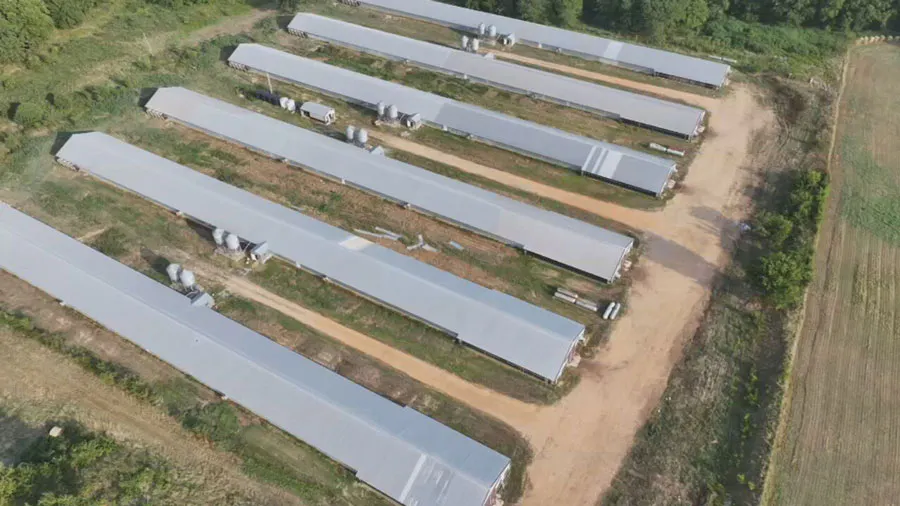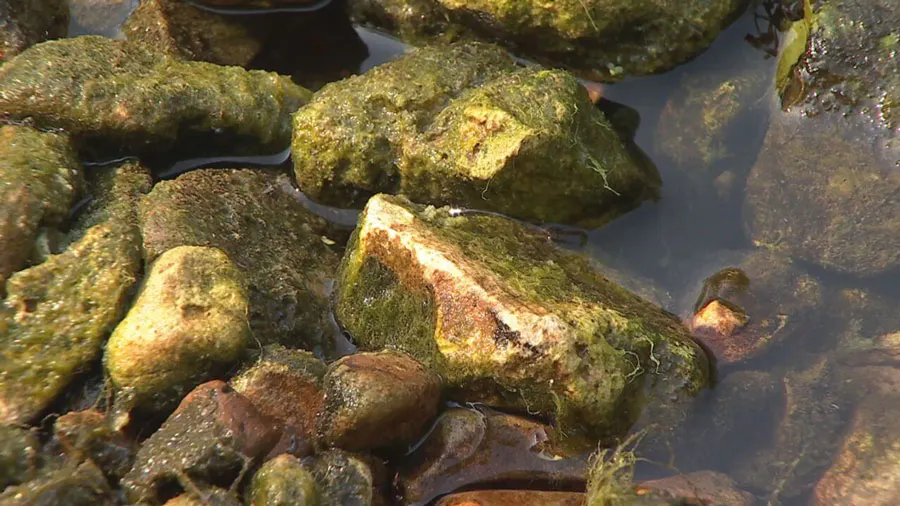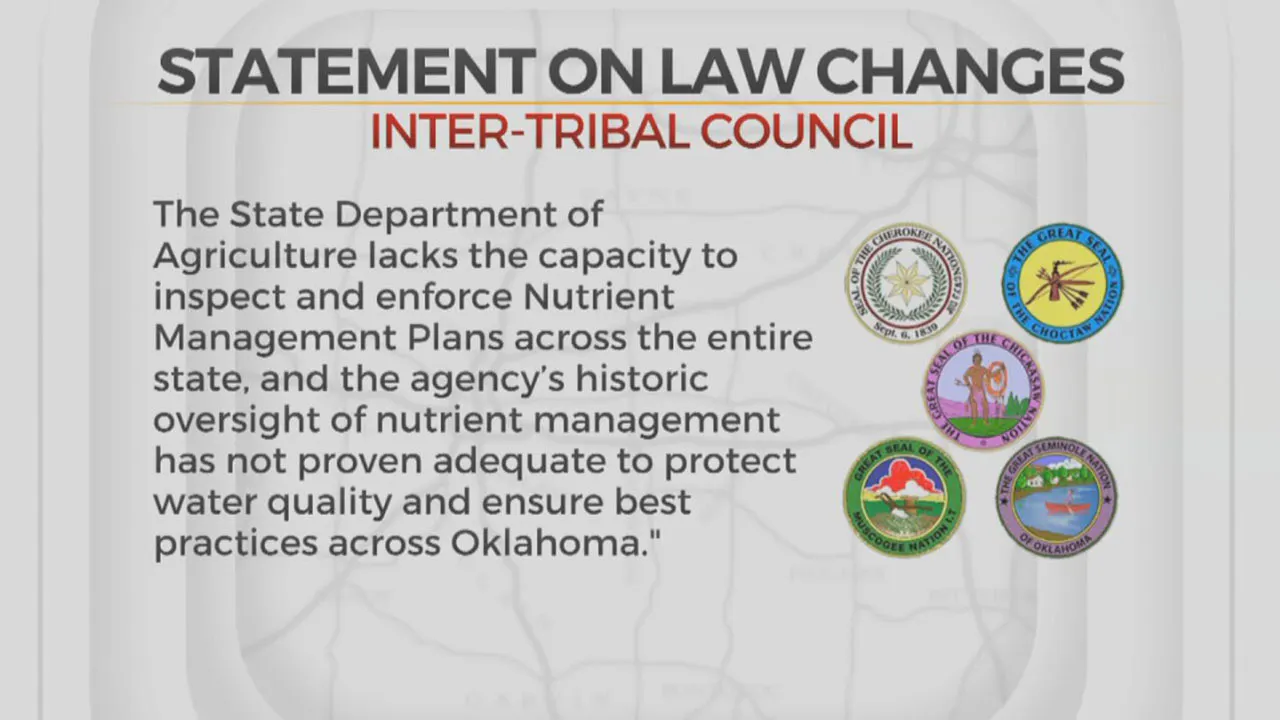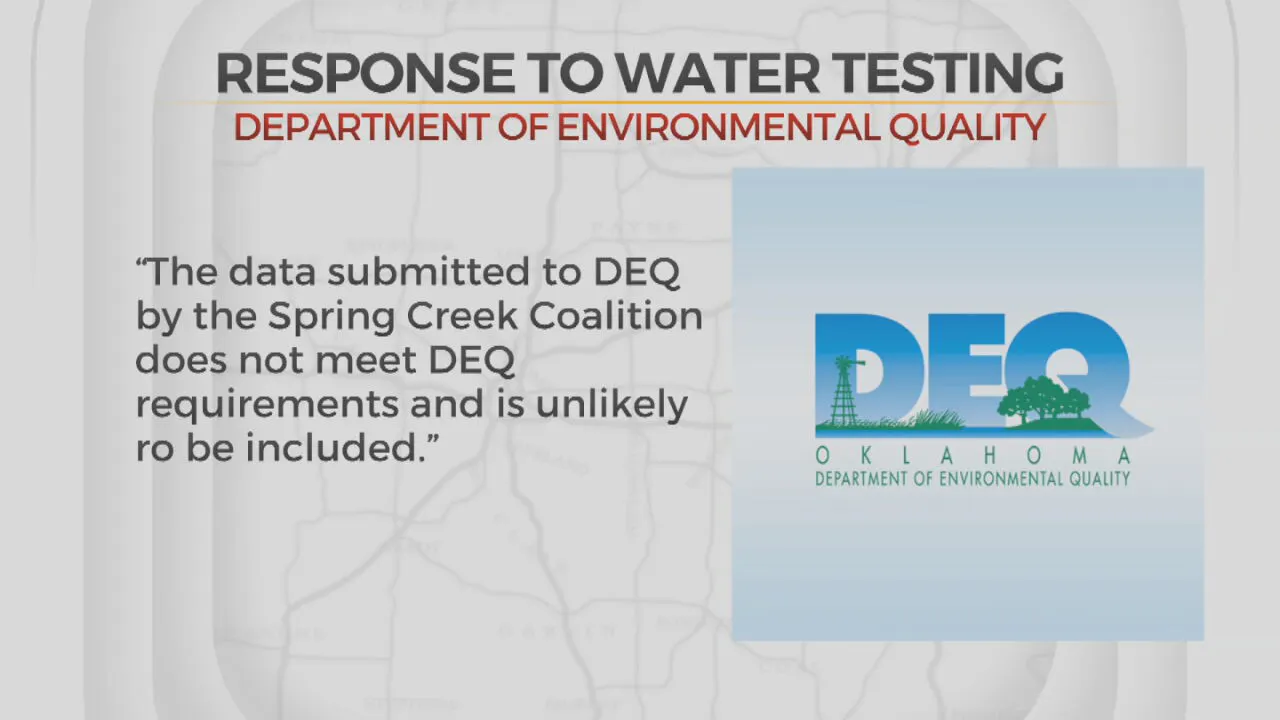Oklahoma's Own In Focus: State's Water Quality After Judge Rules In Favor Of Coalition In Environmental Lawsuit
The ruling mandates better environmental impact processes and neighbor notifications for large-scale poultry facility permits. Here is our Oklahoma's Own In-Focus look at the state's water quality.Tuesday, July 16th 2024, 10:42 pm
CHEROKEE COUNTY, Okla. -
A Delaware County judge has ruled in favor of a group working to protect an Oklahoma stream. The Spring Creek Coalition filed the lawsuit against the Oklahoma Department of Agriculture, Food, and Forestry (ODAFF) in 2021.
ODAFF tried to dismiss the lawsuit but failed. The judge in the case ruled that the Department doesn't have a good process in place to address environmental impact concerns before the permit is issued.
The judge also ruled that going forward, the state will need to notify neighbors living near proposed large-scale poultry facilities and provide proper notice to weigh in before permit approval.

Environmental Impact on Spring Creek
Cherokee County farmer Mike Appel believes Spring Creek is already being destroyed by the waste runoff created by these farms. Algae can be seen growing in what has been considered Oklahoma's most pristine Ozark stream.
Appel believes it's the result of high phosphorus levels from waste runoff. The Spring Creek Coalition has been testing the creek for E. coli and phosphorus for six years and has verified those concerns.

Farmer's Concerns and Coalition's Efforts
"We're losing something really valuable. And we're losing it very quickly," said Mike Appel.
Spring Creek flows for 34 miles, starting in Kansas, Oklahoma, and ending in Ft. Gibson Lake. Four hundred yards of it flows through the front of Appel's 20 acres in Cherokee County.
"And to think that we might not be able to use it, that is, I can't, like, I can't even go there. Like, I will fight so hard for that," said Appel.
Appel is on the board of the Spring Creek Coalition, a non-profit protecting the stream that was established in 1994. The group is made up of 150 people, including private landowners and residents who live along the creek.

Judge's Ruling and Its Impact
When the judge in the case issued his ruling in June, Appel says it felt like a small win.
"It felt like we were being heard finally, like someone understands what we've been experiencing the last six years," said Appel.
ODAFF has filed a motion to reconsider. That motion says the court has overstepped and misunderstood the process to permit these poultry houses.
Appel and his family continue to use the creek as normal, knowing there's a risk every time they swim. He also knows the poultry farms aren't leaving. That's why he hopes the ODAFF, the chicken farmers, and the large corporations they work for can do what's best for Oklahoma's waterways.
"Let's all sit down. Let's figure this out. Like, how can we coexist with the poultry houses and not destroy our creeks?" said Appel.

Data and Responses from DEQ
The Spring Creek Coalition says it sent data on bacteria and nitrogen levels in the water to the state Department of Environmental Quality (DEQ). The DEQ says the data doesn't meet state or federal requirements.
The DEQ also addressed concerns about the fumes coming from the farms, saying the agency has air quality stations statewide.


Previous Lawsuits and New Legislation
This isn't the first lawsuit over chicken farms in our state. The state of Oklahoma sued Tyson Foods and others back in 2005, claiming the companies were responsible for polluting the Illinois River and Lake Tenkiller. A federal judge agreed and ruled in January that the state and those being sued need to reach a settlement by August.
There's a new law taking effect November 1 that shields the poultry industry from future lawsuits. It also allows farmers to spread chicken waste as fertilizer as long as they have a system in place to prevent it from getting into water. That fertilizer was previously illegal. If waste is found in the water, the company or farmer has to adjust its management plan. Each plan has to be renewed every six years. Anyone who does not follow the plan can be fined up to $10,000 a day. It takes effect November 1.
Several groups, including the Inter-Tribal Council, opposed the new laws when they were making their way through the state capitol. The tribes say the law could damage Oklahoma's ability to keep its waters clean. They also say the State Department of Agriculture doesn't have the capacity to enforce the law.
Awaiting Further Court Decisions
As for what's next, we're waiting on the Delaware County judge to rule on the state's motion to reconsider the ruling in favor of people living near the chicken farm. That motion was just filed on Monday.
For more of News On 6's Oklahoma's Own In-Focus stories, CLICK HERE.
Erin Conrad
Erin Conrad joined the News On 6 team in 2014 as a general assignment reporter and quickly fell in love with Tulsa. After leaving in 2018 Erin happily rejoined the team in April of 2024. Erin has contributed to the reporting of two major stories that earned KOTV two Murrow Awards. You can now find her anchoring on weekends and reporting during the week.
More Like This
July 16th, 2024
September 9th, 2025
September 9th, 2025
September 9th, 2025
Top Headlines
September 9th, 2025
September 9th, 2025
September 9th, 2025
September 9th, 2025









